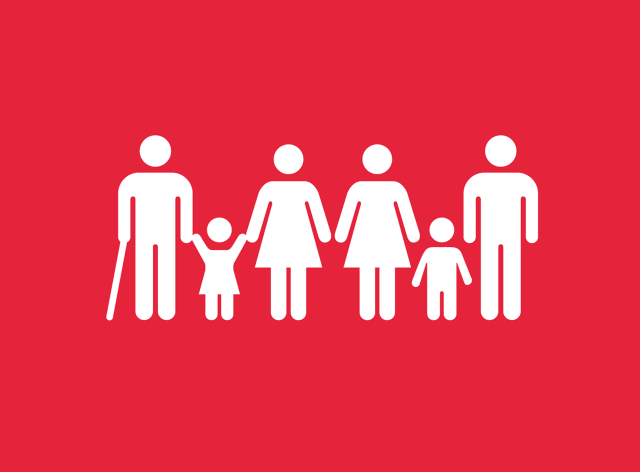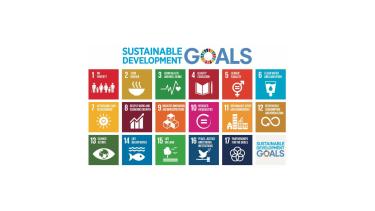On this page, you will find a report on all the actions and activities initiated at the University of Namur in connection with the United Nations Sustainable Development Goal #1: "No Poverty".
Actions and activities initiated at the University of Namur in connection with the United Nations Sustainable Development Goal #1: "No Poverty".
Social impact and actions
Financial help to students
The Social Unit for Students
The Social Unit for Students grants various financial aids on the basis of specific criteria and according to your situation (nationality, assimilation, academic, family and financial):
- Reduction of registration fees
- Loans
- Non-refundable allowance
- In the framework of the financing of a mobility project, students in the 2nd cycle (Master) can apply for an interest-free loan;
- Fight against digital poverty: donation or low-cost rental of computer equipment.
- ARES-CCD mobility grants for nationals of a Southern country, particularly for the Master of Specialization in International and Development Economics.
Project to fight menstrual insecurity
The Social Unit, in collaboration with the students of the General Assembly of Students (AGE) and the project kots, is studying the issue of menstrual insecurity. A survey will be launched in order to better understand this reality and to measure its degree and consequences. In some families, this issue is linked to precariousness in terms of physical and mental health, with little or no resources allocated to these needs. The results of the survey will make it possible to start prevention work and raise awareness on menstrual education, with, in the long term, free distribution of protection.
The "Solidarithèque" - solidarity grocery shop
The "Solidarithèque" is a solidarity grocery shop designed to support higher education students facing financial difficulties. It was set up and is still run by the social services of UNamur, HEAJ and HEPN in partnership with the Association pour la Solidarité Étudiante en Belgique (ASEB). More info here
The Wynants-Sudan Fund
Going to university represents a major investment for some families. That's why, every year, UNamur provides financial support from its own funds to many students to help them with the various aspects of their university life. This action will be reinforced in the coming years with the creation of the Paul and Olivia Wynants-Sudan Student Welfare Fund. Read more
Success aids at UNamur
MOOC - Aiming for success
Since February 2020, UNamur has been offering sessions of this free MOOC (online course) to prepare students for higher education and perfect their study methods. Learn more
Tutoring in veterinary medicine
Students can benefit from the personalised assistance of a student who has received specific training in tutoring and who acts under the supervision of the department's pedagogical coordinator. Find out more
Coup de pouce à l'orientation
13 tool-kits to help students choose their courses. It's a tool developped by the PAN (Pôle Académique Namurois) from which the UNamur is part of. Learn more
Transition tutoring
Transition tutoring, offered in a variety of ways in partnership with other higher education establishments, is an educational support project between a tutor (the student) and a mentee (the final year secondary school pupil) to help them through the transition from secondary to higher education. Learn more
Tutoring in Law
Students can benefit from the personalized assistance of a student from the second- or third-year block who has received specific training in tutoring and who acts under the supervision of the Faculty's pedagogical coordinator. Read more
Participation in policy making at local, regional, national and/or international levels to implement programs and policies against poverty
UNamur, like the 5 other universities of the Walloon-Brussels Federation (FWB), is present in various commissions within the ARES:
- CAR | Commission in support for success
- CCD | Commission for Development Cooperation
- CESI | Commission for Inclusive Higher Education
- COFOC | Commission for Continuing Education and Lifelong Learning
- COM | Commission on Student and Staff Mobility
- COVEDAS | Commission for Student Life, Democratisation and Social Affairs
- CRI | International Relations Commission
UNamur Venture
UNamur Venture is linked to the third university mission, which consists in providing service to society and help delevelop economic growth.
The different services of UNamur Venture are the following:
- promoting entrepreneurship initiatives in the research field with the aim of helping society;
- enhancing the research projects led at the UNamur;
- help young entrepreneurs develop their innovative start-ups based on research made at the UNamur.
Teaching assignments in universities in the South - Adrien Bauchau Fund
The Adrien Bauchau Fund provides financial support for training and development missions. These are teaching missions from various Belgian institutions (UNamur, ULiège, UMH, HEC,...) to institutions in the South (ISP Bukavu DRC, Univ. Yaoundé and Buea in Cameroon...). Read more
The University Forum for International Development Cooperation (FUCID)
As an NGO within a university, the University Forum for International Development Cooperation (FUCID) aims to be a place of meeting, expression, debate, advocacy, awareness and commitment, action, militancy and utopia. A network of men and women sharing the same values of solidarity and citizenship. It is rooted in the vision of UNamur and in this framework participates in the overall objective of the university, namely to train responsible actors in society for a more just, sustainable and equitable world, with respect for human rights. Find out more
ARES CCD Calls: Travel Grant 2023
ARES offers students from the UNamur the possibility to have a mobility experience in order to carry out either a first research experience (part or all of their dissertation/final work) or a work experience (internship) in an ARES scholarship partner country. Information for UNamur students, researchers and staff is available on the current calls interface (intranet). More info on the International Relations Department...
Institutional call
Co-financing of 2 interdisciplinary PhD theses for researchers from the South with Institutes. Information is available on the current calls interface (intranet).
ILI Project: Migrants trained in French at the University of Namur
Since 2015, the University of Namur, in partnership with the Hénallux teaching department, has launched a number of initiatives to help migrants. They are part of a Local Integration Initiative (LII) project recognised by the Walloon Region. As well as organising intercultural activities, a French language course is offered for levels B1, B2 and C1 of the CEFR (Common European Framework of Reference for Languages). This year, around 15 students took part. Here's a look back at this rewarding experience, in the service of a more inclusive society. Learn more
UNamur stands for Ukraine
The UNamur wishes to help Ukrainians by taking up different actions:
- Offer support to students and researchers who are staying at the UNamur and help them maintain their activities in the best possible conditions.
- Together with the other Belgian universities, find a way to allow the Ukrainians to finish their studies/researches in Belgium Concrete solutions for UNamur registrations are proposed here
- Collect clothes, food or school material. Learn more
The Development Finance & Public Policies (DeFiPP) Research Institute
Within the Institute of Development Finance & Public Policies (DeFiPP), the Centre de Recherche en Economie du Développement (CRED) is a research unit dedicated to the study of development economics. More specifically, researchers work on issues related to micro-institutions, collective action, market development and political economy. Much of the research conducted at CRED is based on first-hand data collected by researchers in many countries in Africa, Asia and Latin America. Read more
In the press - 05/10/2022 | The work of UNamur researchers features in the World Bank's "Poverty and Shared Prosperity 2022" report
Research
Discover all publications related to the sustainable development goal "No Poverty" on the UNamur research portal.
Publications related to the sustainable development goal "No Poverty" on the UNamur research portal.
Education
The theme of sustainable development is establishing itself as an important element of university training and is one of the priorities of the University of Namur.
The Certificate on great precariousness is also part of objective n°1.

